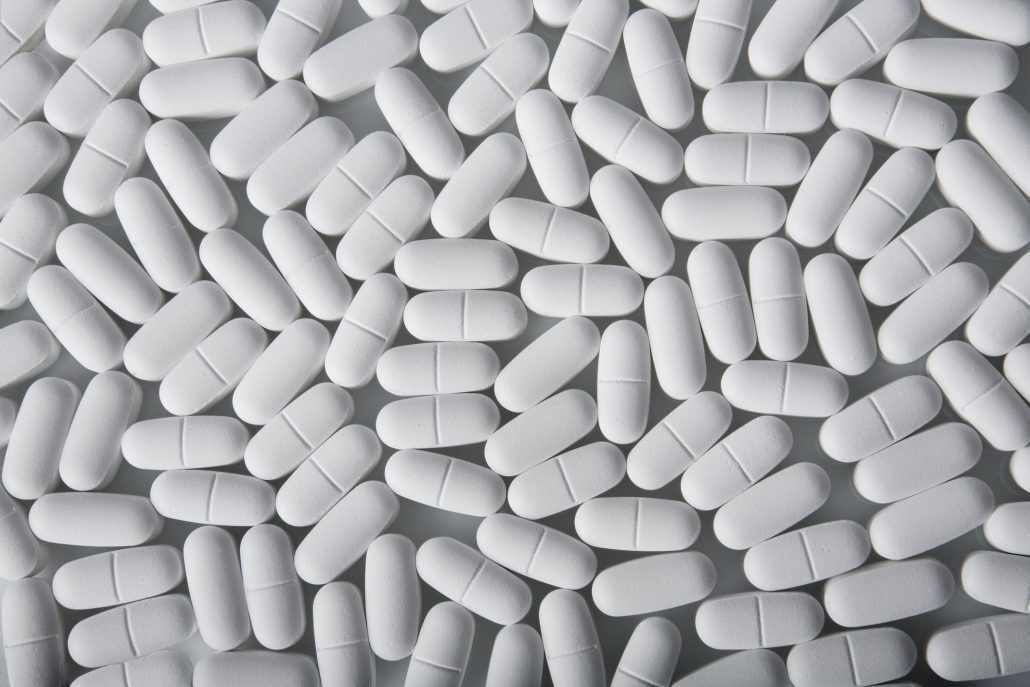by Sher Delva | Jun 5, 2017 | Addiction, Addiction Stigma, Detox, Drug Abuse, Mental Health, Stigma, Therapy, Withdrawal

If you have gained a significant amount of weight after rehab, rest assured you are not alone. Like the freshman 15, gaining weight is practically expected. In fact, 65 percent of people gain weight after leaving rehab. Even more struggle with eating disorders, compulsive overeating, or what is now known as “food addictions.” What is the correlation and how can we get to the bottom of this?
First, we must look at the brain. Drug addiction and overeating have similar effects in the brain. When you were using drugs, it released happy chemicals like dopamine and serotonin which made you feel good. After becoming sober, you may find that you use food to acquire those same happy chemicals.
You might try to “replace” the high you felt from drugs with unhealthy foods. Foods high in fat, sugar, and calories tend to initiate a quick dopamine response in the brain. Unfortunately, like drugs, this happy feeling does not last long. Eventually, you crash and then try to eat again to achieve that same feeling. Substituting food for drugs or alcohol may lead to compulsive overeating and yes, weight gain.
Weight gain can be a source of personal suffering for some, and may even lead to a relapse. It can also contribute to health consequences like heart disease, high blood pressure, and diabetes. It is important to address the reasons why you have gained weight in recovery. Nutrition is crucial in the early stages of recovery, so it is important to recognize when you are not taking care of yourself properly.
Five common reasons people struggle with weight gain during recovery:
-
Stress
Stress is a risk factor for overeating. In the early stages of recovery, you may find yourself under a lot of stress, and now you do not have your drug of choice to mask those feelings. Research has shown time after time how stress can lead to overeating. For many, stress can lead to compulsive overeating and obesity.
-
Lack of Dopamine
One major reason for overeating is a lack of dopamine receptor in the brain. When the brain is low in dopamine, it affects impulse control and emotional regulation. Most people with any addiction have a lack of dopamine in the brain. The brain does not instantly recover once you stop using. In the absence of drugs for this reward mechanism, food becomes the next best thing. Weight gain inevitably follows.
-
History of Eating Disorders
Another reason for weight gain is a history of eating disorders before entering rehab. Dual diagnosis in rehab is extremely common. Many enter rehab with other psychological conditions including eating disorders. Almost 40 percent of women in recovery meet the criteria for an eating diagnosis. Men in treatment also experience binge eating and weight gain, especially in the beginning as they seek to satisfy cravings for drugs and alcohol. Few treatment centers screen their clients for eating disorders, so this is often not addressed once the recovering addict exits treatment.
-
Untreated Depression or Anxiety
As stated above, dual diagnosis is very common in treatment. Many addicts enter treatment with a history of anxiety and depression. Treatment for mood disorders can help reduce the risk of overeating related to these co-occurring disorders. Often, anxiety and depression can lead a person to overeat in an attempt to relieve themselves of these emotional hardships. Overtime, overeating occurs which leads to weight gain.
-
Nutritional Deficiencies
In some ways, weight gain after recovery is not a bad thing. Many recovering addicts are nutritionally deficient after detoxing from drugs. Chances are, there eating behaviors and lifestyle choices were not healthy while using. Eating can be a way of restoring your mind and body back to health. It is important to eat the right foods, however overstressing about weight gain should not be your main concern after leaving treatment. Your body may just be in a healing process. Your priority should be staying sober.
Despite the importance of nutrition in recovery, it is uncommon for treatment facilities to address it. It is important to go to a facility that incorporates wellness into the recovery process. While in treatment, take steps to eating healthy and exercising so that it becomes a lifestyle change upon leaving treatment.
There are steps that you can take to improve your overall health and well-being. Talk to your doctor about supplements you can take to help make the process easier. We encourage you to develop a healthy eating and exercise plan while you are in treatment. The staff at your facility may be able to help you along this process.
Overall, being mindful of your health while in treatment and after treatment is important. If you have gained weight after rehab, do not fret. Simple changes can turn it all around.
CALL NOW 1-888-922-5398
by Sher Delva | May 31, 2017 | Addiction, Addiction Medicine, Addiction Stigma, Drug Abuse, Mental Health, Stigma

Termination of employment document
One question many ask before going to treatment is whether or not they can keep their jobs after treatment. The decision to go to treatment is a challenging one and often, conflicts like separation from family, current employers, and financial hardships prevent some from making the crucial decision to go to treatment.
If you are struggling with substance abuse, all these areas are already being negatively affected by your addiction. Your employer may already suspect that you have an issue with substance abuse. If they do not, it is a smart idea to address the issue before it progresses to interfering with your employment.
We understand that you have concerns about seeking treatment, but you risk everything—including your job— if you do not seek treatment for your alcohol or drug problem. Your addiction has become unmanageable, and it is crucial you address it to sustain a healthy life.
Can I lose my job if my boss knows that I need treatment?
The Americans with Disabilities Act (ADA) protects employees from being discriminated against because of a disability. People who struggle with the disease of alcoholism are considered to have a disability under ADA guidelines. However, the guidelines do get tricky. If your job performance declines because of your drinking, your employer has the right to terminate you because of poor work performance.
Actively using illegal drugs is not protected by the ADA. However, the act does protect someone who has gone through drug rehab and is not using or has a history of drug use but is in recovery. You employer has the right to test you for drugs, but they cannot ask about your history of addiction. Therefore, it is best to seek recovery and live a sober life to avoid failing a drug test and losing your job.
But will my job be held while I am getting treatment?
The ADA does provide guidelines to protect recovering addicts who seek treatment for drugs and alcohol. Your employer is required to make reasonable accommodations, such as allowing flexibility to attend AA/NA meetings or allowing a leave of absence to attend alcohol and drug rehab. The Family and Medical Leave Act or FMLA can protect you while you seek treatment.
Still, some employers make it difficult to return to work after treatment. It is important you know your rights and the policies of your employer to hold them accountable. Furthermore, remember that seeking treatment should be your priority, and your life depends on living a sober, healthy life. Without treatment, your life may become unmanageable and eventually lead to termination regardless.
Won’t my career or skill set suffer if I leave for treatment?
Think about how much your addiction affects your ability to work. The reality is your career and abilities will likely improve through seeking treatment for your addiction. When you go to treatment, you begin at detox where your body is cleansed from alcohol and drugs and your health and cognitive function improve, making you sharper.
Addressing your addiction issues will make you a better employee. You will find that your productivity improves as well as your desire to work harder. You will now have newfound ambitions that do not involve figuring out how to obtain your D.O.C (drug of choice). Instead, you can use those strategies to improve in your profession.
How will I pay for bills and living expenses if I go to rehab?
Going to treatment can be a major expense on top of your bills and cost of living. However, there are a variety of ways to get around this. First, make sure to determine what your insurance covers regarding addiction treatment. Some insurance companies will cover a set amount of time in treatment with little out-of-pocket costs.
Furthermore, using accrued vacation time will help provide a paycheck while in treatment. If your employer offers short-term or long-term disability leave, you might be able to use it while in treatment. More importantly, rehab is a valuable investment that will change your life. If you do NOT go to treatment, you could lose your job due to termination, which would result in more financial strain.
Get the Help You Need
If you are afraid of losing your job or not having a job to come back to, rest assured there are a variety of ways to go about making sure this is not an issue. First, you have to make the decision to go to treatment and explore your options.
You are more likely to keep your job or get a better one after seeking help. You owe it to yourself, your employer and your family to recover from substance abuse, Call now. We want to help.
CALL NOW 1-888-922-5398
by Sher Delva | May 22, 2017 | Addiction, Addiction Medicine, Addiction Stigma, Mental Health, Stigma, Therapy, Uncategorized, Withdrawal

A recent article in Psychology Today explores the topic of chronic stress and how stress can increase vulnerability to addiction.
Have you dealt with a lot of stress lately? If so, it might be time to take care of it. Stress is a major risk factor in addiction recovery. Stress may increase the chance of a relapse. Stress is a normal part of everyday life and while it may not be possible to eliminate stress completely, there are ways to manage it better.
What is Stress?
Most of us have been stressed before, but how exactly do you define stress? Stress is defined as adversity or hardship that a person experiences. Biologically speaking, stress causes a rise in our blood levels and increases stress hormones, like cortisol. Fight-or-flight is the normal response to stress. In this state, all the blood goes to the muscles so that you are ready to take off when necessary.
There is a difference between chronic and normal stress. Moderate stressors in life are perceived to be pleasant. In fact, some people love a challenging stressful situation that promotes the release of stress hormones. However, intense and prolonged stress due to unfortunate situations can produce feelings of helplessness and depression.
Chronic stress increases the risk for developing:
- Depression
- The Common Cold
- Influenza
- Tension Headaches
- Clenching of the Jaw
- Teeth Grinding
- Tension of neck and shoulders
Stress stems from a multitude of sources. Trauma in early childhood can make people more vulnerable to stress later in life. There are studies that suggest stress in early life can cause methylation of key genes that control the stress system When this happens, we remain in a constant state of emergency.
The workplace is another environment prone to chronic stress.
If your job is very demanding, stress is a likely result. On the same note, those who feel unappreciated at work or unimportant are susceptible to developing clinical anxiety and depression, as well as stress-related medical conditions like ulcers and diabetes.
For some, a common remedy is abusing addictive substances. Research in human studies reveals that adversity during childhood and early life can increase the risk for addiction. Furthermore, people with an unhappy marriage, dissatisfaction with employment or harassment also report increased rates of addiction.
The more stressors a person is exposed to, the greater risk of substance abuse. Economist Deaton (2015) shows that less educated white Americans who struggle in the job market during early adulthood are more likely to experience “cumulative disadvantage” over time, with health and personal problems that lead to drug overdoses, alcohol-related liver disease, and suicide.
Why is this?
One explanation is the self-medication theory. This theory suggests that a person uses drugs to cope with stressors or relieve themselves of anxiety and depression resulting from a traumatic event. Thus, drug use acts as a mean to soothe the psychological distress.
High emotional stress is linked to loss of impulse control and an inability to delay gratification. Chronic stress decreases gray matter volume in the brain. This area is associated with cognitive control and stress regulation.
Essentially, stressed people are prone to give into their impulses as a way of coping with daily stress. In sum, people who are more stressed lack the ability to make rational decisions.
In conclusion, learning to manage stress is crucial to success in recovery. if you are struggling, reach out for help. There are a variety of treatment options available to manage stress. We are a phone call away. Please take care of your health. Call now.
CALL NOW 1-888-922-5398
by Sher Delva | May 22, 2017 | Addiction, Addiction Medicine, Addiction Stigma, Mental Health, Stigma, Therapy, Uncategorized

A needle exchange program in the Bronx, New York is stepping up to combat the ongoing opioid crisis and rising overdose death rates. Their latest tactic is handing out fentanyl test strips to heroin users.
The reasoning behind the test strips is to lower overdoses due to fentanyl-laced heroin.
Staff member Van Asher explains that the test strips will help addicts determine whether or not there is fentanyl is the drugs they’re using. The strips are usually used to drug test urine, but people can put a little of the mixture that’s in their syringe onto the strip to test whether or not what they are injecting contains fentanyl. This will help them make a more informed decision about what they are putting in their bodies, Asher explained to NPR.
Studies conducted by the Centers For Disease Control and Prevention revealed that most people do not know whether the heroin they’re using contains fentanyl. Asher told NPR that he started handing the strips out of desperation to curb the overdose rates among his clientele.
With each strip, Asher gives a survey to fill and report back. Unfortunately, Ashley admits getting clients to follow through is a difficult task.
Still, Asher is now working with programs around the country to try to replicate his idea. The idea originated at Inside in Vancouver Canada, North America’s only safe injection facility.
However, the major difference is that if someone is choosing to use their fentanyl-laced heroin at Inside, they can be medically monitored and an overdose is more likely to be reversed by staff, preventing death.
In the United States, safe injection facilities do not exist yet. While there are few areas testing the concept, none have yet to become established. Furthermore, harm reduction strategies remain a controversial topic. Therefore, it is up to the drug user to monitor how they use the drugs.
Some simply are not convinced.
Drug users like Vincente Estema explain that knowing there is fentanyl in his heroin is not going to stop him from using.
“It’s stronger! If it makes me feel the euphoria, I’m going to go for it,” he told NPR.
When an addict is at the point of wanting to use drugs, it is unlikely that the fentanyl test strips would deter them from using. However, it would at least inform them of the risk they are taking, and could potentially reduce the amount of the drug they take.
In 2015, the spike in fentanyl-laced overdose deaths led the Drug Enforcement Administration to issue a nationwide warning about the drug.
“Drug incidents and overdoses related to fentanyl are occurring at an alarming rate,” said DEA Administrator at the time, Michele Leonhart, calling it a “significant threat to public health and safety.”
During a three-month period in 2016, 74% of opioid overdoses in Massachusetts were caused by fentanyl! Fentanyl is up to 100 times stronger than morphine and is the strongest opioid available to doctors; even worse, different variations of fentanyl are hitting the streets like carfentanil and acryl fentanyl.
The numbers from Massachusetts indicate that heroin overdoses are dropping, but opioid-related overdose deaths continue to increase. Authorities agree that fentanyl is to blame. In a press release, Massachusetts Secretary of Health and Human Services Marylou Sudders called the data, “a sobering reminder of why the opioid crisis is so complex.”
Do you believe these strips could help combat the opioid epidemic? Would it affect how an addict uses? Regardless, any addict continues to use needs to seek help instead. The next time you use could be your last. Recovery is possible. We want to help you. Call now.
CALL NOW 1-888-922-5398
by Justin Mckibben | May 16, 2017 | Addiction, Detox, Drug Abuse, Panic Disorder, Prescription Drugs, Xanax

With prescription drug abuse being one of the biggest issues facing the country today, there is an increasing need for education and awareness as to what these drugs really are and how powerful they can be. One of the prescription narcotics most commonly abused is Xanax, a name brand medication in the Benzodiazepine (Benzo) category of depressant drugs. This medication can be very helpful to those who use it accordingly, but it can also be seriously addictive and even life threatening.
So in taking a closer look at specific substances, we want to of course answer the question- how long does Xanax stay in your system.
How Long Does Xanax Stay in Your System: Understanding Alprazolam
Alprazolam is the generic name for a potent, short-acting anxiolytic drug in the benzodiazepine class. Xanax is actually a brand-name for Alprazolam, and is typically the most commonly known version. Alprazolam is frequently utilized in the treatment of anxiety disorders, such as:
The drug binds to a number of specific sites on the GABA receptor of the brain, and elicits responses as a:
- Anxiolytic (Anti-panic)
- Sedative
- Muscle relaxant
- Anti-convulsant
- Amnestic
- Antidepressant
While there is some debate about people building a tolerance to the anxiolytic effects, there is a clear indication that tolerance to the sedative effects will build in a couple days of using the drug. Thus, withdrawal symptoms can occur after only a few weeks of use if the drug is suddenly stopped.
How Long Does Xanax Stay in Your System: Side-Effects
There are various possible side-effects that may occur while taking Xanax or any Alprazolam drug. Some possible adverse effects include:
- Drowsiness
- Dizziness
- Fatigue
- Dry mouth
- Slurred speech
- Suicidal ideation
- Urinary retention
- Skin rash
- Respiratory depression
- Constipation
These side-effects can be uncomfortable and some are more common than others. However, probably some of the greater risks come with prolonged use, which can lead to severe dependence and withdrawal.
How Long Does Xanax Stay in Your System: Withdrawal
Another reason people as how long does Xanax stay in your system is to determine how long the withdrawal periods are. Once the body has developed dependence on a drug, withdrawal or “rebound” symptoms can make it extremely difficult to discontinue use. Some common symptoms of withdrawal from Xanax include:
- Rebound anxiety
- Panic
- Hallucination
- Insomnia
- Moodiness
- Tremors
- Nightmares
- Nausea
- Vomiting
- Seizures
Some of these seizures and other reactions can actually become life-threatening, making Xanax withdrawals some of the most dangerous one can experience.
How Long Does Xanax Stay in Your System: Overdose
When asking- how long does Xanax stay in your system- you may be concerned about the risks of overdose. An Alprazolam overdose can range from mild to severe depending on how much of the drug has been taken. One of the primary problems with an Alprazolam overdose is that it creates an excessive depression of the central nervous system. Some of the signs of Xanax overdose are:
- Dizziness
- Impaired balance
- Muscle weakness
- Hypotension
- Drowsiness
- Shallow breathing
- Fainting
- Coma
- Death
These risks may be more or less serious depending on a number of factors, including if Xanax is taken with any other substances.
How Long Does Xanax Stay in Your System: Half-life
As with all drugs, and even most chemicals or substances that enter our bodies, there are a number of factors that influence how long it takes for Xanax to leave the body, such as:
- Metabolism
- Height
- Weight
- Body fat content
- Age
- Health of the liver
- Kidney health
- Amount of the drug taken
- Length of time using the drug
Typically Xanax has a half-life of 9-16 hours, meaning it takes a healthy body 9-16 hours to get rid of half of a dose of the drug. Because of the half-life, the drug will typically be out of the systems after 4 days. However, this is usually just for the occasional consumption. Xanax can stay in the system for a week or longer for frequent or heavy users depending on the above factors.
How Long Does Xanax Stay in Your System: Detoxing
A huge problem with drugs like Xanax is that a lot of people assume these prescription narcotics are safer because they are not street drugs. Yet, Benzodiazepine drugs like Xanax are commonly connected to serious health issues. Beyond that, the dangers of addiction and the potentially fatal withdrawals are exactly why these medications are not nearly as safe as some people like to think they are.
Because of the risks of Xanax withdrawal it is crucial to seek out safe medical supervision for the detox process. Because Xanax can be present in the body for over a week for long-term users, it is important to have a means to monitor the complications Xanax withdrawal may cause. This is especially true if the individual has been using other substances in combination with Xanax.
Detoxing does not have to be what stands between someone who is suffering and a full recovery from this progressive and far too often fatal disease. If you want to get Xanax out of your system in a safe and effective way, a medical detox is the best choice. If you or someone you love is struggling, please call toll-free now.
CALL NOW 1-888-922-5398






